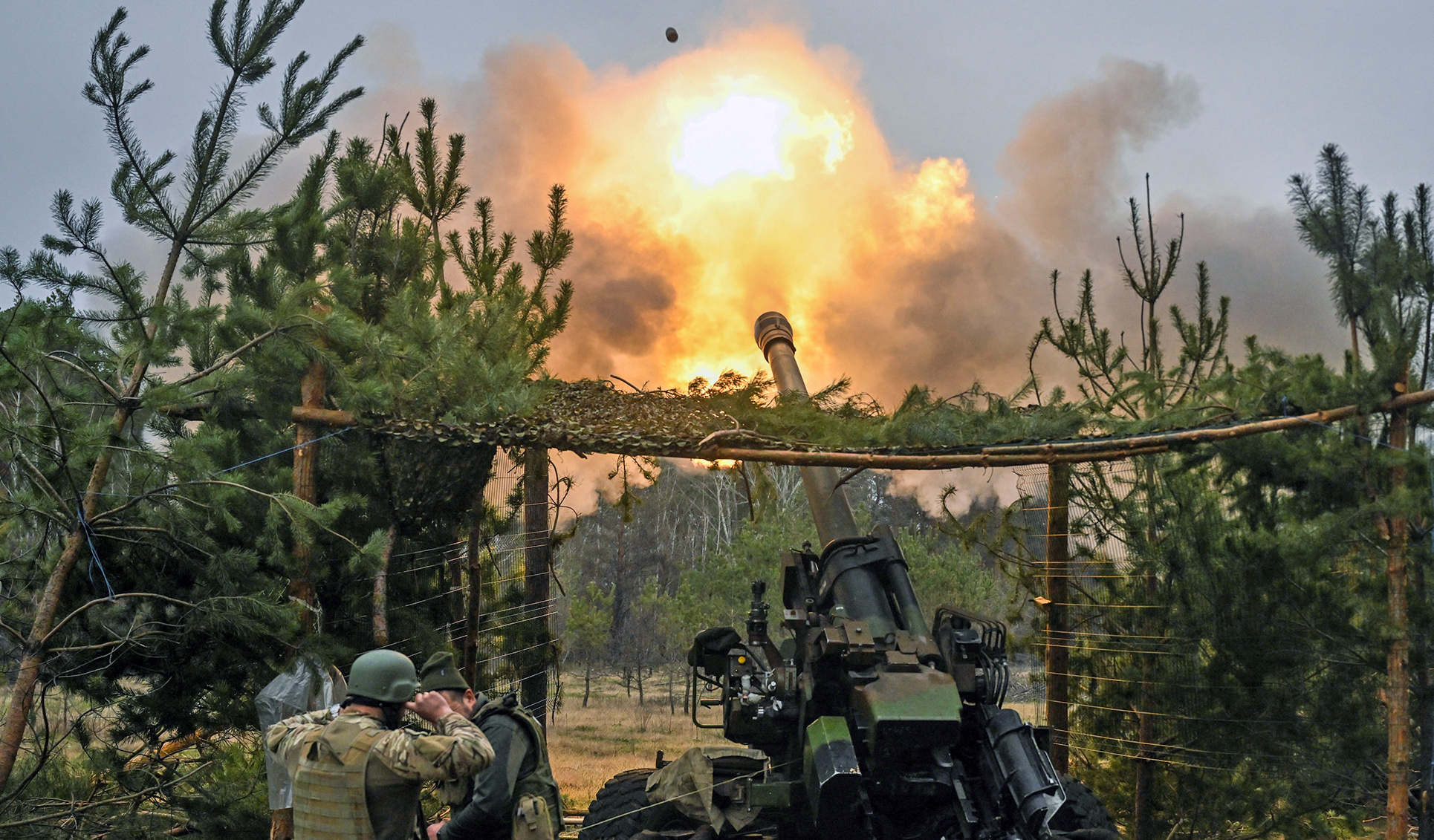Kyiv’s forces have already received controversial cluster munitions promised by the U.S. last week, a top Ukrainian general told CNN Thursday.
“We just got them, we haven’t used them yet, but they can radically change [the battlefield],” Brig. Gen. Oleksandr Tarnavskyi, commander of the Tavria Joint Forces Operation, said in an interview Thursday with CNN‘s Alex Marquardt.
Last week, the Pentagon announced that the U.S. would send Ukraine “hundreds of thousands” of rounds of cluster munitions known as Dual-Purpose Improved Conventional Munitions (DPICMs).
The rationale behind providing Ukraine with DPICMs was two-fold, Under Secretary of Defense for Policy Dr. Colin H. Kahl told reporters, including from The War Zone, last week.
The first is that the U.S. has a large stockpile of them and giving some to Ukraine won’t have the same effect on supplies as the donation 155mm unitary rounds. The U.S. alone has donated more than two million of those to Ukraine.
The other main reason Kahl stated is that the rounds contain many individual submunitions or bomblets that scatter over a wide area. That will help Ukraine defeat the massive amount of fortifications Russia has built up, especially trenches.

You can read more about these 155mm rounds, including what they are capable of and why they are controversial in our coverage here.
Tarnavskyi told CNN that the munitions will give Ukraine a battlefield “advantage” that could change how the Russians fight the war.
“The enemy also understands that with getting this ammunition, we will have an advantage. The enemy will give up that part of the terrain where it is possible to use this,” he said.
Ukraine’s top leaders will determine where the weapons will be used, Tarnavskyi said, noting that “this is a very powerful weapon.”
In an effort to convince U.S. President Joe Biden to sign off on providing DPICMs, Ukrainian officials agreed in writing that they will not use the rounds in civilian populated urban environments, and that they will record where they use these rounds.
In his interview with CNN, Tarnavskyi emphasized that Ukraine will live up to that agreement, even in areas occupied by Russian forces.
He added that news of the DPICMs has rattled Russians.
“The Russians think that we will use it on all areas of the front,” he added. “This is very wrong. But they are very worried.”
During the recently-concluded NATO summit in Vilnius, Lithuania, Ukrainian President Volodymyr Zelensky thanked Biden for making the tough choice to provide the cluster munitions and said it was only fair that Ukraine receive them.
“I want us to take a look at this from a different perspective, from a perspective of fairness,” Zelensky said during a press conference. “Russians are constantly using cluster munitions on our territory, and they are fighting only on our land. They’re killing our people.”
But there has been some reporting that Ukraine had already received DPICMs, from Turkey.
“Turkey began sending Ukraine a form of U.S.-designed, artillery-fired cluster bomb in late 2022 after months of Kyiv pleading with the Biden administration for the munitions,” Foreign Policy reported in January, citing “current and former U.S. and European officials familiar with the decision.”
However, “a senior Turkish official has strongly denied reports alleging that Ankara delivered cluster bombs to Ukraine last year,” Middle East Eye reported a few days later.
“We don’t have cluster munitions and we haven’t provided them to Ukraine,” Ibrahim Kalin, the Turkish president’s spokesperson, said in a briefing with reporters at the time. “Ukrainians themselves denied it.”
Though Tarnavskyi said Ukraine has yet to use the cluster munitions, we will likely learn of their use rather quickly – perhaps even before any official announcement of when they are – given the ubiquity of open-source reporting on social media in this war.
Update 3:17 p.m. Eastern Time:
“There are cluster munitions in Ukraine at this time,” Lt. Gen. Douglas A. Sims II confirmed to reporters, including from The War Zone, at a Pentagon press briefing Thursday afternoon.
“We know that there were some provided by a third country before, but yes, the U.S. cluster munitions are in Ukraine.”
Sims did not name that third country.
Contact the author: howard@thewarzone.com
